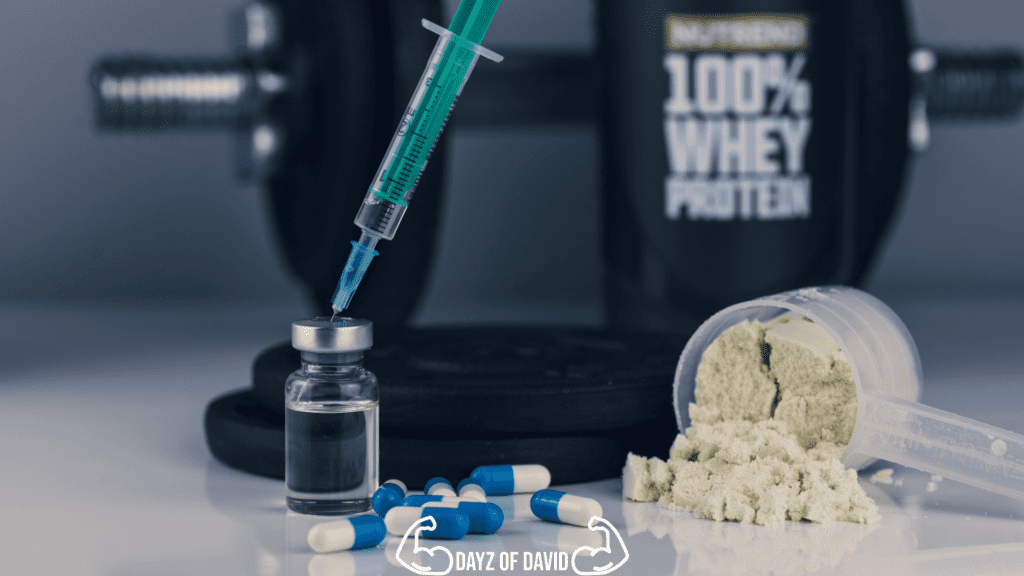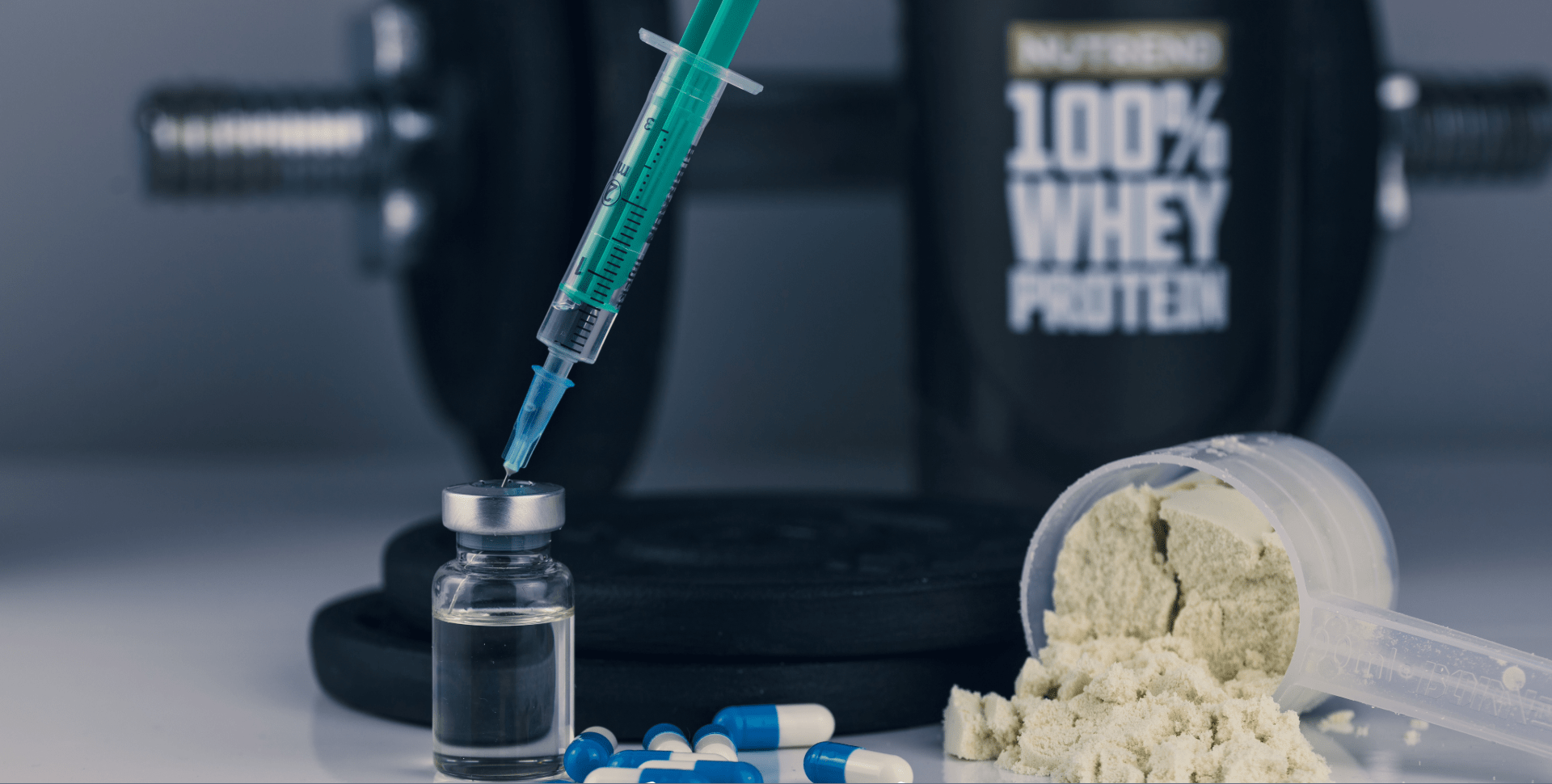Hormonal balance is crucial for men’s overall health and well-being, influencing energy levels, mood, and various physiological functions. Adopting daily habits that support hormonal balance can contribute to enhanced vitality and longevity. In this comprehensive guide, we’ll explore key daily habits that promote hormonal equilibrium in men, covering lifestyle choices, nutrition, and self-care practices.
Understanding Hormonal Balance in Men
Overview of Hormones
Understanding the intricate interplay of key hormones in men is crucial for unlocking the secrets to maintaining optimal health and well-being. Among these essential players, testosterone takes center stage, playing a pivotal role in male development, reproductive function, and overall vitality. As the primary male sex hormone, testosterone influences muscle mass, bone density, and the regulation of other critical hormones, setting the foundation for physical strength and resilience.
However, the hormonal symphony doesn’t end with testosterone. Estrogen, often associated more with women, also plays a vital role in men’s health. In balanced amounts, estrogen contributes to bone health, cognitive function, and cardiovascular well-being. Maintaining the delicate equilibrium between testosterone and estrogen is key for the holistic health of men, ensuring a harmonious blend that supports both physical and mental vitality.
Cortisol, known as the stress hormone, adds another layer to the hormonal narrative. While essential for managing stress responses, prolonged elevation of cortisol levels can have detrimental effects on various bodily functions, impacting immune health, metabolism, and mental clarity. Striking a balance in cortisol levels is essential for maintaining resilience in the face of stress without compromising long-term well-being.
Lastly, insulin, often associated with blood sugar regulation, plays a crucial role in metabolism. Maintaining optimal insulin levels is vital for energy regulation and preventing conditions like diabetes. The intricate dance between insulin and other hormones ensures the body’s ability to efficiently utilize energy from the food we consume, contributing to overall metabolic health.
In essence, the key hormones in men operate as a finely tuned orchestra, each playing a unique instrument in the symphony of health. Achieving hormonal balance is not just about isolated aspects of physical well-being but about fostering an integrated and holistic approach to health that considers the intricate interactions of these essential chemical messengers. By understanding and supporting the delicate dance of testosterone, estrogen, cortisol, and insulin, men can embark on a journey towards vibrant health and a life of sustained vitality.
Importance of Balance
Highlighting the significance of hormonal balance is paramount for unlocking the keys to sustained energy, mood stability, muscle maintenance, and overall vitality. The delicate equilibrium of hormones orchestrates a symphony within the body, influencing every aspect of well-being. One of the central players in this ensemble is testosterone, a hormone that not only impacts muscle mass but also serves as a linchpin for overall physical and mental resilience.
In the pursuit of hormonal harmony, it’s essential to recognize the role of estrogen, often overshadowed in discussions about men’s health. A balanced interplay of testosterone and estrogen contributes to mood stability, cognitive function, and cardiovascular health, forming the foundation for a holistic sense of well-being.
The hormonal quartet extends to cortisol, the stress hormone, which, when properly regulated, aids in managing stress responses. However, imbalances in cortisol levels can disrupt the delicate equilibrium, impacting immune function, metabolism, and mental clarity. Striking a balance in cortisol ensures resilience in the face of stress without compromising long-term health.
Insulin, the guardian of energy regulation, adds another layer to the narrative. Maintaining optimal insulin levels is crucial for metabolizing energy efficiently, influencing everything from mood to muscle function. By recognizing the intricate dance between these key hormones, individuals can foster a comprehensive approach to health that goes beyond the physical, touching the realms of mental and emotional well-being.
In essence, hormonal balance is the linchpin for a life of sustained vitality. It’s not merely a quest for isolated physical health but a holistic journey that considers the nuanced interactions of testosterone, estrogen, cortisol, and insulin. By emphasizing the significance of hormonal equilibrium, individuals can unlock the potential for boundless energy, stable moods, resilient muscles, and an overall sense of vibrant well-being.

Nutrition for Hormonal Health
Balanced Diet
Undoubtedly, the foundation of hormonal health lies in the profound impact of a well-rounded diet enriched with essential nutrients. Proteins, healthy fats, and micronutrients play pivotal roles in supporting hormone production, ensuring a delicate balance that influences every facet of physical and mental well-being.
Proteins, often referred to as the building blocks of life, are instrumental in the synthesis of hormones, including the crucial testosterone. A diet rich in high-quality proteins from sources like lean meats, fish, eggs, and plant-based alternatives provides the necessary amino acids for optimal hormone production, fostering muscle maintenance and overall vitality.
Healthy fats, often misconceived as adversaries, are, in fact, integral for hormonal health. Omega-3 fatty acids, found in fatty fish, flaxseeds, and walnuts, contribute to the production of hormones and support cognitive function. Balancing fat intake, incorporating sources of monounsaturated and polyunsaturated fats, helps maintain a healthy hormonal milieu while also benefiting cardiovascular health.
Micronutrients, the unsung heroes of hormonal balance, play crucial roles in the intricate dance of chemical messengers within the body. Key players like zinc, magnesium, and vitamin D are essential for testosterone production. A diet abundant in a diverse range of fruits, vegetables, nuts, and seeds ensures an ample supply of these micronutrients, promoting hormonal harmony and overall health.
In essence, the significance of a well-rounded diet cannot be overstated when it comes to supporting hormonal health. It serves as the cornerstone for an intricate biochemical symphony, where proteins, healthy fats, and micronutrients harmonize to create an optimal environment for hormone production. By embracing a diet that encompasses a variety of nutrient-dense foods, individuals not only nourish their bodies but also empower their hormonal systems, paving the way for enduring vitality and well-being.
Omega-3 Fatty Acids
Omega-3 fatty acids, abundant in fish, flaxseeds, and walnuts, play a pivotal role in supporting hormonal balance and mitigating inflammation within the body. These essential fatty acids, particularly eicosapentaenoic acid (EPA) and docosahexaenoic acid (DHA), are renowned for their multifaceted benefits that extend beyond cardiovascular health to the intricate realm of hormonal regulation.
Hormonal Harmony
Omega-3 fatty acids contribute to the synthesis and regulation of hormones, creating an environment conducive to hormonal balance. DHA, in particular, is a key component of cell membranes, influencing cellular communication and receptor sensitivity. This structural role is critical for the optimal functioning of hormones throughout the body, including those involved in metabolism, mood regulation, and immune response.
Testosterone Boost
Research suggests that omega-3 fatty acids may positively impact testosterone levels. Adequate intake of these essential fats has been associated with enhanced testosterone production, benefiting muscle maintenance, energy levels, and overall male vitality. The interplay between omega-3s and hormone regulation underscores the importance of these fats in supporting optimal hormonal function.
Inflammation Modulation
One of the standout features of omega-3 fatty acids is their potent anti-inflammatory properties. Chronic inflammation can disrupt hormonal balance and contribute to various health issues. By incorporating fish, flaxseeds, or walnuts into the diet, individuals introduce a natural and effective means of dampening inflammatory responses. This anti-inflammatory effect not only supports hormonal harmony but also contributes to overall health and well-being.
Cognitive and Emotional Well-Being
Omega-3s are integral for cognitive function and emotional well-being, influencing neurotransmitter activity in the brain. The brain’s reliance on healthy fats, including omega-3s, underscores their significance in mood regulation and mental clarity. Balancing hormones related to stress and mood, such as cortisol and serotonin, contributes to emotional resilience and stability.
Cardiovascular Health
Beyond hormonal benefits, omega-3 fatty acids are renowned for their positive impact on cardiovascular health. By reducing inflammation and improving blood flow, they contribute to overall cardiovascular well-being, indirectly supporting hormonal balance by enhancing the delivery of nutrients and oxygen throughout the body.
Incorporating sources of omega-3 fatty acids, such as fatty fish, flaxseeds, and walnuts, into the diet is a dietary strategy with far-reaching implications for hormonal health and overall vitality. From hormonal regulation to inflammation modulation, these essential fats wield a transformative influence on the body, offering a natural and holistic approach to maintaining balance and promoting enduring well-being.
Zinc-Rich Foods
The significance of zinc-rich foods, such as lean meats, nuts, and seeds, cannot be overstated when it comes to supporting testosterone production and overall hormonal health. Zinc, an essential mineral, plays a crucial role in numerous physiological processes, with a spotlight on its impact on hormonal balance.
Testosterone Production
Zinc is a key player in the synthesis of testosterone, the primary male sex hormone. It acts as a cofactor for enzymes involved in the conversion of cholesterol into testosterone within the testes. Adequate zinc levels are essential for the proper functioning of these enzymes, ensuring a steady and optimal production of testosterone. A deficiency in zinc can impair this process, potentially leading to imbalances in hormone levels.
Hormonal Regulation
Beyond its direct influence on testosterone, zinc contributes to the regulation of other hormones involved in overall hormonal balance. It plays a role in controlling the activity of hormones like estrogen and cortisol, ensuring a harmonious interplay between different hormonal pathways. Maintaining this delicate balance is vital for overall endocrine health and the prevention of hormonal disruptions.
Immune Support
Zinc is renowned for its immune-boosting properties. A robust immune system is crucial for overall health, and hormonal balance is intricately linked to immune function. By supporting the immune system, zinc indirectly contributes to the prevention of stress-induced hormonal imbalances and helps maintain a resilient and healthy body.
Antioxidant Defense
Zinc acts as an antioxidant, protecting cells from oxidative stress. This antioxidant function is essential for safeguarding the health of tissues and organs, including the testes, where testosterone is produced. By mitigating oxidative damage, zinc supports the overall integrity of the hormonal system.
Reproductive Health
Zinc is crucial for male reproductive health beyond testosterone production. It plays a role in sperm development and motility, contributing to fertility. Ensuring an adequate intake of zinc-rich foods is therefore not only beneficial for testosterone levels but also for overall reproductive well-being.
Incorporating zinc-rich foods like lean meats, nuts, and seeds into the diet is a proactive step towards supporting testosterone production and maintaining hormonal harmony. Whether sourced from animal or plant sources, zinc is a fundamental mineral that empowers the intricate dance of hormones within the body, promoting not only male vitality but also overall hormonal health.

Regular Exercise and Hormonal Regulation
Strength Training
Regular strength training exercises, particularly weightlifting, wield a powerful influence on testosterone levels and overall hormonal balance. This form of physical activity engages the body in a way that stimulates the endocrine system, fostering a hormonal environment conducive to enhanced vitality and well-being. Here’s how weightlifting becomes a catalyst for optimizing testosterone and hormonal balance:
Testosterone Release
Weightlifting triggers the release of testosterone, the primary male sex hormone, in response to the physical demands placed on the muscles. Compound exercises such as squats, deadlifts, and bench presses, which involve multiple muscle groups, have been shown to elicit a significant testosterone response. The intensity and resistance provided by weightlifting create an environment where the body recognizes the need for increased testosterone production to support muscle growth and recovery.
Muscle Mass and Metabolism
Weightlifting contributes to the development of lean muscle mass, and this muscle tissue becomes a reservoir for testosterone receptors. As muscle mass increases, so does the demand for testosterone. Additionally, muscle tissue is metabolically active, influencing overall metabolism. A higher metabolic rate has been linked to improved hormonal balance and can positively impact factors such as insulin sensitivity.
Hormonal Cascade
The act of lifting weights induces a hormonal cascade, involving not only testosterone but also growth hormone and insulin-like growth factor (IGF-1). This synergistic release of anabolic hormones supports muscle hypertrophy, bone density, and overall physical resilience. The orchestrated dance of these hormones creates an environment that extends beyond testosterone, contributing to comprehensive hormonal harmony.
Reduction of Cortisol Levels
Weightlifting has been shown to help regulate cortisol, the stress hormone. While acute increases in cortisol during exercise are normal, chronic elevation can lead to hormonal imbalances. Regular weightlifting sessions help modulate cortisol levels, preventing excessive stress-induced responses and promoting hormonal equilibrium.
Insulin Sensitivity
Resistance training, including weightlifting, enhances insulin sensitivity. Improved insulin sensitivity is associated with better blood sugar regulation and reduced risk of insulin resistance. As insulin plays a role in hormonal balance, particularly in relation to metabolism, weightlifting contributes to an environment that supports overall hormonal health.
Long-Term Hormonal Adaptations
Consistent engagement in weightlifting results in long-term hormonal adaptations. Over time, the body becomes more efficient at producing and utilizing hormones, contributing to sustained hormonal balance. Regular strength training acts as a proactive strategy for preventing age-related declines in testosterone levels, promoting enduring vitality.
In essence, weightlifting emerges as a dynamic and multifaceted tool for optimizing testosterone levels and overall hormonal balance. Its impact extends beyond the realms of muscle development, influencing the intricate network of hormones that govern various physiological processes. As a cornerstone of a holistic approach to health, weightlifting empowers individuals to harness the transformative benefits of hormonal optimization, fostering enduring well-being and vitality.
Aerobic Exercise
Engaging in aerobic exercises, such as jogging or cycling, offers a myriad of benefits for managing cortisol levels and fostering hormonal harmony. These cardiovascular activities, when incorporated into a regular fitness routine, contribute to a balanced endocrine system and promote overall well-being. Here are the key benefits of aerobic exercises in the context of cortisol regulation and hormonal balance:
Cortisol Regulation
Aerobic exercises have been shown to help regulate cortisol levels. While cortisol is essential for managing stress responses, chronic elevation can lead to hormonal imbalances and various health issues. Aerobic activities act as a natural stress reliever, promoting the efficient regulation of cortisol production. The rhythmic and repetitive nature of activities like jogging or cycling induces a relaxation response, mitigating the potential negative impact of prolonged stress on the hormonal system.
Stress Reduction
Aerobic exercises are renowned for their stress-reducing effects. Physical activity triggers the release of endorphins, the body’s natural mood lifters, which counteract the stress response. The combination of increased endorphins and reduced cortisol contributes to an overall reduction in stress levels. Managing stress through aerobic exercises positively influences hormonal harmony, preventing chronic stress-related hormonal disruptions.
Improved Sleep Quality
Quality sleep is integral to hormonal balance, and aerobic exercises have been linked to improvements in sleep patterns. The calming effects of cardiovascular activities contribute to better sleep quality, indirectly impacting cortisol levels. Adequate and restful sleep supports overall hormonal health, including the regulation of growth hormone and insulin.
Enhanced Mood and Mental Well-Being
Aerobic exercises are associated with improved mood and mental well-being. The release of endorphins during these activities not only alleviates stress but also positively influences neurotransmitters and hormonal pathways related to mood regulation. The holistic impact on mental well-being extends to hormonal balance, creating a positive feedback loop that supports overall health.
Cardiovascular Health
Aerobic exercises contribute to cardiovascular health, influencing blood circulation and oxygen delivery to tissues. A healthy cardiovascular system is crucial for overall well-being and indirectly impacts hormonal balance. Efficient blood flow supports the transport of hormones throughout the body, ensuring their optimal functioning.
Metabolic Benefits
Regular aerobic exercise improves metabolic function, influencing hormones related to energy regulation. Enhanced insulin sensitivity and better blood sugar control are key metabolic benefits that contribute to hormonal harmony. These improvements in metabolic health are vital for preventing insulin resistance and associated hormonal imbalances.

Stress Management Techniques
Mindfulness and Meditation
Meditation, a timeless practice rooted in ancient traditions, has emerged as a potent and accessible tool for modern-day individuals seeking stress reduction and hormonal balance. In the bustling pace of contemporary life, where stressors abound, meditation offers a sanctuary of stillness and mindfulness. At its core, meditation is a practice that involves cultivating a heightened state of awareness, bringing profound benefits to both mental well-being and physiological harmony, particularly in the regulation of cortisol levels.
Stress Reduction Through Mindfulness
Meditation is synonymous with mindfulness—an intentional and non-judgmental focus on the present moment. By directing attention to the current experience without dwelling on past concerns or future anxieties, individuals practicing meditation can break the cycle of stress. This heightened awareness allows for a conscious response to stressors, preventing the automatic and often exaggerated stress responses that elevate cortisol levels.
Cortisol Regulation
Chronic stress can lead to elevated cortisol levels, contributing to a host of health issues. Meditation serves as a powerful modulator of cortisol production, helping to bring the hormone back to optimal levels. Studies have shown that regular meditation practices can result in reduced cortisol secretion, promoting hormonal balance and preventing the negative consequences associated with chronic stress.
Relaxation Response
Meditation induces what is often referred to as the “relaxation response.” This physiological state is characterized by a decrease in heart rate, respiratory rate, and muscle tension, all of which contribute to a sense of deep relaxation. As the body enters this state, cortisol production decreases, providing a counterbalance to the stress-induced elevations typically experienced in the modern lifestyle.
Improved Emotional Well-Being
Meditation has been linked to improvements in emotional well-being, influencing neurotransmitters and hormones associated with mood regulation. By fostering a positive emotional state, meditation indirectly contributes to hormonal balance, including the regulation of cortisol. The practice encourages a more measured response to emotional challenges, reducing the potential for stress-induced hormonal disruptions.
Better Sleep Quality
Quality sleep is integral to cortisol regulation, and meditation has been shown to improve sleep patterns. By calming the mind and reducing the mental chatter that often accompanies stress, meditation sets the stage for restful sleep. Adequate and restorative sleep supports hormonal harmony, including the modulation of cortisol levels during the natural circadian rhythm.
Long-Term Resilience
Meditation is not only a tool for immediate stress relief but also a means of cultivating long-term resilience. Through regular practice, individuals develop a heightened ability to navigate life’s challenges with a sense of calm and perspective. This enduring resilience contributes to sustained hormonal balance and overall well-being.
In essence, meditation stands as a beacon of tranquility in the face of life’s stresses, offering individuals a practical and effective means of reducing stress and balancing cortisol levels. As a holistic practice, meditation empowers individuals to cultivate mindfulness, fostering enduring health and vitality in both mind and body.

Quality Sleep
Sufficient and quality sleep is a cornerstone of hormonal regulation, playing a pivotal role in the secretion of essential hormones, including growth hormone and testosterone. The intricate dance of these hormones is deeply intertwined with the natural sleep-wake cycle, underscoring the profound impact that a good night’s sleep has on overall health and well-being.
Growth Hormone Release
One of the key functions of growth hormone (GH) is the stimulation of growth, cell regeneration, and overall repair. The majority of GH secretion occurs during deep sleep, particularly during the slow-wave sleep (SWS) phase. SWS is the stage where the body undergoes restorative processes, and the pulsatile release of GH is integral to tissue repair, muscle growth, and the maintenance of a healthy body composition.
Testosterone Production
Testosterone, the primary male sex hormone, is intricately linked to sleep quality and duration. The majority of testosterone production occurs during sleep, with peak levels typically observed during the early morning hours. Disruptions to the sleep cycle, including inadequate sleep duration or poor sleep quality, can lead to disruptions in testosterone production, potentially impacting muscle mass, energy levels, and overall male vitality.
Circadian Rhythm Alignment
Sufficient and quality sleep helps align the body’s circadian rhythm, the internal clock that governs various physiological processes, including hormone secretion. Consistent sleep patterns reinforce the natural ebb and flow of hormones, ensuring that growth hormone and testosterone are released at optimal times, promoting overall hormonal harmony.
Muscle Repair and Recovery
Both growth hormone and testosterone play crucial roles in muscle repair and recovery. During sleep, especially the deep stages, the body prioritizes the repair of tissues, including the muscles that may have undergone stress during daily activities or exercise. Quality sleep supports this reparative process, contributing to muscle growth and overall physical resilience.
Cognitive Function and Emotional Well-Being
Hormones influenced by sleep, including growth hormone and testosterone, contribute not only to physical well-being but also to cognitive function and emotional stability. A well-rested mind is more alert, focused, and emotionally resilient. This mental clarity is partly attributed to the hormonal balance achieved during sufficient and quality sleep.
Hormonal Harmony for Overall Health
Beyond growth hormone and testosterone, quality sleep influences a myriad of other hormones, including cortisol, insulin, and leptin. These hormones are integral to metabolic health, stress regulation, and appetite control. By fostering hormonal harmony through adequate sleep, individuals support overall well-being and reduce the risk of hormonal imbalances that can lead to various health issues.

Limiting Exposure to Endocrine Disruptors
Avoiding Toxins
Endocrine disruptors are substances that can interfere with the endocrine system, the complex network of glands and hormones that regulate various physiological processes in the body. Exposure to these disruptors, often found in certain chemicals and pollutants, has been associated with a range of harmful effects on hormonal balance and overall health. Understanding the potential risks and adopting strategies to minimize exposure is crucial for promoting long-term well-being. Here’s a closer look at the harmful effects and practical tips for reducing exposure to endocrine disruptors:
Potential Harmful Effects
Hormonal Imbalances
Endocrine disruptors can mimic or interfere with natural hormones, leading to hormonal imbalances. This interference can affect the regulation of hormones such as estrogen, testosterone, thyroid hormones, and insulin, potentially contributing to various health issues.
Reproductive Issues
Exposure to endocrine disruptors has been linked to reproductive problems, including fertility issues, altered menstrual cycles, and disruptions in the development of reproductive organs. Pregnant women, in particular, may be more vulnerable to the effects of these disruptors, which can impact fetal development.
Developmental Disorders
The developing fetus and young children are especially susceptible to the effects of endocrine disruptors. Exposure during critical periods of development can lead to developmental disorders, affecting the nervous system, behavior, and cognitive function.
Metabolic Disruptions
Some endocrine disruptors have been associated with metabolic disturbances, contributing to conditions such as obesity, diabetes, and altered lipid metabolism. These disruptions can impact overall metabolic health and increase the risk of chronic diseases.
Immune System Dysfunction
Endocrine disruptors may influence immune system function, potentially leading to increased susceptibility to infections and autoimmune disorders. The intricate connections between the endocrine and immune systems highlight the far-reaching consequences of exposure to these substances.
Tips for Minimizing Exposure
Choose Organic and Non-Toxic Products
Opt for organic and non-toxic personal care products, cleaning supplies, and household items. Many conventional products contain endocrine-disrupting chemicals, such as phthalates and parabens. Reading labels and choosing products with minimal chemical additives can help reduce exposure.
Filter Drinking Water
Use water filters to reduce exposure to endocrine disruptors that may be present in tap water. Certain chemicals, like bisphenol A (BPA) and pesticides, can leach into water supplies. A quality water filtration system can help minimize these contaminants.
Avoid Plastic Containers
Minimize the use of plastic containers, especially those with recycling codes 3 (phthalates) and 7 (BPA). Instead, opt for glass, stainless steel, or other non-plastic alternatives for food and beverage storage to reduce the risk of chemical leaching.
Eat Organic and Fresh Foods
Choose organic and fresh foods to reduce exposure to pesticides and herbicides, which can act as endocrine disruptors. Washing fruits and vegetables thoroughly can also help minimize pesticide residues.
Cook with Safe Cookware
Use cookware made from materials that do not release harmful chemicals into food. Non-stick cookware, for example, may contain per- and polyfluoroalkyl substances (PFAS), which are associated with endocrine disruption. Opt for stainless steel, cast iron, or ceramic cookware.
Educate Yourself
Stay informed about potential endocrine disruptors and their sources. Being aware of common chemicals and pollutants allows you to make informed choices and advocate for safer alternatives in your personal and community settings.
By adopting these tips and making conscious choices in daily life, individuals can reduce their exposure to endocrine disruptors and promote a healthier hormonal balance. Advocating for policy changes, supporting research on safer alternatives, and raising awareness about the potential risks of these disruptors are also essential steps in creating a safer and healthier environment for everyone.

Hydration and Hormonal Health
Importance of Water
Proper hydration is a fundamental pillar of health, playing a crucial role in supporting overall bodily functions, including the transport and balance of hormones. Water is an essential component of nearly every physiological process, and its influence extends to the intricate network of hormones that regulate various bodily functions. Here’s a closer look at how proper hydration contributes to hormonal balance and overall well-being:
Hormone Transport
Water serves as a vital medium for the transport of hormones throughout the body. Hormones are often carried in the bloodstream to reach their target organs or tissues. Adequate hydration ensures optimal blood volume and circulation, facilitating the efficient transport of hormones to their intended destinations. This is particularly crucial for hormones involved in metabolism, stress response, and the regulation of bodily functions.
Temperature Regulation
Proper hydration is essential for maintaining optimal body temperature through processes like sweating. When the body is adequately hydrated, it can effectively regulate temperature, preventing overheating during physical activity or in warm environments. Hormones such as cortisol, which plays a role in stress response and temperature regulation, are influenced by hydration status.
Endocrine Gland Function
The endocrine glands, including the pituitary gland, thyroid gland, and adrenal glands, rely on proper hydration for optimal function. These glands secrete hormones that regulate metabolism, growth, stress response, and various other physiological processes. Water supports the synthesis and release of hormones from these glands, ensuring their effectiveness in maintaining hormonal balance.
Metabolism Support
Hydration is linked to metabolic processes, and hormones like insulin, which regulates blood sugar, are influenced by hydration status. Water is essential for the digestion and absorption of nutrients, and maintaining proper hydration supports metabolic efficiency. This, in turn, contributes to hormonal balance related to energy regulation.
Stress Hormone Regulation
Dehydration can trigger the release of stress hormones, such as cortisol. When the body is in a state of dehydration, it perceives stress, leading to an increase in cortisol production. Chronic elevation of cortisol can disrupt hormonal balance and contribute to various health issues. Proper hydration helps mitigate unnecessary stress hormone responses.
Kidney Function and Hormonal Clearance
The kidneys play a crucial role in filtering waste products, including hormones, from the bloodstream. Adequate hydration supports optimal kidney function, allowing for the efficient clearance of hormones that are no longer needed. This process contributes to hormonal balance and prevents the accumulation of excess hormones in the body.
Cellular Communication
Water is essential for cellular communication, which involves signaling pathways that often rely on hormones. Proper hydration ensures that cells can effectively send and receive signals, facilitating the coordination of various physiological responses regulated by hormones.
In essence, proper hydration is intricately linked to hormonal balance and overall bodily functions. Staying well-hydrated supports hormone transport, glandular function, metabolism, and various processes essential for maintaining homeostasis. Making a conscious effort to prioritize hydration by consuming an adequate amount of water daily contributes to enduring health and vitality.

Limiting Alcohol Consumption
Excessive alcohol consumption can have a profound impact on hormonal balance, disrupting the normal functioning of the endocrine system and leading to various health consequences. While moderate alcohol intake may not cause significant harm, excessive and chronic alcohol consumption can negatively influence hormones involved in metabolism, reproduction, and overall physiological regulation. Understanding the impact of alcohol on hormonal balance underscores the importance of moderation for maintaining optimal health.
Disruption of Sex Hormones
Excessive alcohol intake can disrupt the balance of sex hormones, including testosterone and estrogen. In men, chronic alcohol consumption may lead to a decrease in testosterone levels, impacting reproductive health, muscle mass, and energy levels. In women, alcohol can interfere with estrogen levels, potentially affecting menstrual cycles and fertility.
Impact on Stress Hormones
Alcohol can influence the stress hormone cortisol. While moderate alcohol intake may temporarily elevate cortisol levels as part of the body’s stress response, chronic and excessive alcohol consumption can lead to persistent elevation. This chronic stress hormone imbalance is associated with various health issues, including impaired immune function, weight gain, and mood disturbances.
Disruption of Growth Hormone
Growth hormone, crucial for growth, repair, and metabolism, may be impacted by excessive alcohol consumption. Chronic alcohol intake has been linked to disruptions in growth hormone secretion, potentially affecting processes such as tissue repair, muscle growth, and overall cellular regeneration.
Insulin Sensitivity and Blood Sugar Regulation
Excessive alcohol consumption can impair insulin sensitivity, leading to disruptions in blood sugar regulation. This can contribute to the development of insulin resistance and increase the risk of metabolic disorders such as type 2 diabetes. Proper insulin function is essential for hormonal balance related to energy metabolism.
Liver Function and Hormonal Metabolism
The liver plays a central role in metabolizing hormones, and excessive alcohol consumption can impair liver function. This impairment can lead to difficulties in clearing hormones from the bloodstream, potentially contributing to hormonal imbalances. The liver’s ability to metabolize sex hormones and other regulatory hormones may be compromised.
Impact on Thyroid Function
Alcohol can interfere with thyroid hormone production and function. Chronic alcohol consumption has been associated with changes in thyroid hormone levels, potentially leading to disruptions in metabolism, energy balance, and overall hormonal harmony.
Recommendation: Moderation is Key
Given the potential impact of excessive alcohol on hormonal balance and overall health, the recommendation is moderation. While moderate alcohol consumption may have certain cardiovascular benefits and social aspects, excessive and chronic intake poses significant risks. Guidelines for moderate alcohol consumption typically suggest up to one drink per day for women and up to two drinks per day for men.
Moderation allows for the enjoyment of certain social and cultural aspects of alcohol without significantly compromising hormonal balance or overall health. It is important to be mindful of individual differences, health conditions, and any medications that may interact with alcohol. If there are concerns about hormonal balance or overall health, consulting with a healthcare professional can provide personalized guidance and support for making informed lifestyle choices.
Regular Health Check-ups
Hormone Testing
Regular health check-ups, including hormone testing, are essential for proactive health management, early detection of potential imbalances, and overall well-being. Personally, I believe everyone should be able to read and understand their own blood work. Monitoring hormonal levels through routine assessments provides valuable insights into the functioning of the endocrine system, allowing for timely intervention and personalized healthcare. Here’s a closer look at the importance of regular health check-ups and hormone testing:
Early Detection of Imbalances
Hormonal imbalances can occur for various reasons, including age, lifestyle factors, and underlying health conditions. Regular health check-ups with hormone testing enable the early detection of imbalances before they manifest as noticeable symptoms. Early intervention allows for targeted and effective management to restore hormonal equilibrium.
Prevention of Chronic Conditions
Hormonal imbalances, if left unaddressed, can contribute to the development of chronic conditions such as diabetes, thyroid disorders, and reproductive health issues. Regular health check-ups provide an opportunity to identify and address potential risk factors or imbalances, preventing the progression of these conditions and promoting long-term health.

Individualized Treatment Plans
Hormonal imbalances are highly individualized, and their causes can vary widely. Health check-ups with hormone testing allow healthcare professionals to tailor treatment plans based on the specific needs of each individual. This personalized approach enhances the effectiveness of interventions, optimizing outcomes for hormonal balance and overall health.
Monitoring Hormonal Changes Over Time
Hormonal levels can fluctuate over time due to factors such as aging, stress, and lifestyle changes. Regular health check-ups with consistent hormone testing enable the monitoring of these changes. This longitudinal perspective allows healthcare providers to identify patterns, track progress, and make necessary adjustments to treatment plans as needed.
Evaluation of Hormonal Health in Specific Life Stages
Hormonal needs and levels can vary during different life stages, such as puberty, pregnancy, and menopause. Regular health check-ups during these periods, including hormone testing, enable healthcare professionals to assess and address the unique hormonal requirements associated with specific life stages. This ensures optimal health and well-being during transitional phases.
Identification of Underlying Health Conditions
Hormonal imbalances can sometimes be indicative of underlying health conditions, such as thyroid dysfunction, adrenal issues, or reproductive disorders. Regular health check-ups with comprehensive hormone testing help identify these underlying conditions early on, facilitating timely and targeted treatment to address the root causes.
Holistic Approach to Wellness
Regular health check-ups, including hormone testing, contribute to a holistic approach to wellness. By assessing not only hormonal balance but also other key health indicators, healthcare professionals can provide comprehensive insights into overall well-being. This holistic perspective allows for the development of well-rounded strategies for health optimization and disease prevention.
Conclusion
By incorporating these daily habits into their routines, men can take proactive steps toward achieving and maintaining hormonal balance. Whether through mindful nutrition, regular exercise, stress management, or other lifestyle choices, these habits contribute to overall well-being and longevity. Adopting a holistic approach to hormonal health ensures that men can enjoy sustained vitality, emotional balance, and optimal physical performance throughout their lives.



